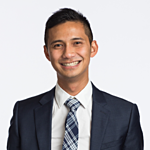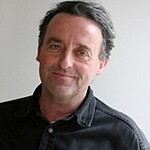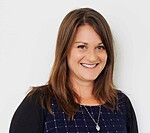To mark the 20th anniversary of the Collaborative on Health and Environment (CHE), we are hosting a series of informal, online conversations with leading thinkers, researchers and innovators in the field of environmental health and justice.
Our first Café featured CHE co-founder Steve Heilig, MPH in conversation with Dr. Julia Varshavsky and Dr. Max Aung, reflecting on past, present and future of efforts to promote disease prevention and support progress toward environmental health.
Steve was part of the core group that launched CHE in 2002, and is Associate Executive Director of the San Francisco Medical Society and Senior Research Associate at Commonweal. As he notes in his recent blog Healthier Humans on a Healthier Planet:
“At our first open meetings, most attendees eagerly signed on to our consensus statement. Once our website was up and we began presenting the concise webinars with leading researchers and other figures that have remained our organic bread and butter, that spiraled into the thousands . . . CHE has fostered numerous interdisciplinary collaborations that have advanced disease prevention and health promotion.”
Julia brought her perspective as a long-ago CHE Program Associate and Coordinator of the CHE-Fertility workgroup to the conversation, as well as her current experience as Assistant Professor of Environmental Health at Northeastern University. Max is both an Assistant Professor of Population and Public Health Studies at the University of Southern California and also Assistant Director (and alumni) of Agents of Change in Environmental Justice — a core CHE partner.
Incoming CHE director Kristin Schafer moderated the online conversation.
Featured Speakers
 Max Aung, PhD, MPH is an Assistant Professor in the Division of Environmental Health at the University of Southern California Keck School of Medicine. Max is an alumnus of the Agents of Change in Environmental Justice Fellowship as well as the RWJF Health Policy Research Scholars Fellowship. Max’s research focuses on applying data science frameworks to understand potential mechanisms linking chemical mixtures to health across the life course. Max also draws on his background as an immigrant and firstgen graduate to leverage research and policy frameworks to reduce environmental health disparities among historically marginalized communities.
Max Aung, PhD, MPH is an Assistant Professor in the Division of Environmental Health at the University of Southern California Keck School of Medicine. Max is an alumnus of the Agents of Change in Environmental Justice Fellowship as well as the RWJF Health Policy Research Scholars Fellowship. Max’s research focuses on applying data science frameworks to understand potential mechanisms linking chemical mixtures to health across the life course. Max also draws on his background as an immigrant and firstgen graduate to leverage research and policy frameworks to reduce environmental health disparities among historically marginalized communities.

Steve Heilig, MPH is Associate Executive Director of the San Francisco Medical Society and Senior Research Associate, Commonweal; Director. He is also a co-founder of and advisor for CHE. Steve also hosts dialogues for The New School, and is involved in several other programs originating at or founded at Commonweal. Trained at five University of California campuses in public health, medical ethics, addiction medicine, economics, environmental sciences, and other disciplines, his other work includes positions at the San Francisco Medical Society, California Pacific Medical Center, and as co-editor of the Cambridge Quarterly of Healthcare Ethics. He has served on many nonprofit boards and appointed commissions, and is a trained hospice worker. He is a widely published essayist and book and music critic for the San Francisco Chronicle, Huffington Post, and many other publications.
 Julia Varshavsky, PhD, MPH is an Assistant Professor of Environmental Health at Northeastern University and part of the Social Science Environmental Health Research Institute (SSEHRI). Julia studies modifiable environmental exposures, with a focus on endocrine disrupting chemicals and maternal-child health outcomes in susceptible and highly exposed populations. Julia’s research agenda also includes systematic review, advancing risk assessment, community-engaged research, and bridging the gap between health and sustainability. Before Northeastern, Julia served as research scientist for California EPA’s Office of Environmental Health Hazard Assessment (OEHHA) and as postdoctoral scholar for UCSF’s Program on Reproductive Health and the Environment (PRHE). Prior to graduate school, Julia facilitated scientific dialogue and translation of environmental reproductive health science as CHE-Fertility coordinator. With diverse experiences across academia, the non-profit sector, and regulatory agencies, Julia is committed to conducting science with a real-world impact.
Julia Varshavsky, PhD, MPH is an Assistant Professor of Environmental Health at Northeastern University and part of the Social Science Environmental Health Research Institute (SSEHRI). Julia studies modifiable environmental exposures, with a focus on endocrine disrupting chemicals and maternal-child health outcomes in susceptible and highly exposed populations. Julia’s research agenda also includes systematic review, advancing risk assessment, community-engaged research, and bridging the gap between health and sustainability. Before Northeastern, Julia served as research scientist for California EPA’s Office of Environmental Health Hazard Assessment (OEHHA) and as postdoctoral scholar for UCSF’s Program on Reproductive Health and the Environment (PRHE). Prior to graduate school, Julia facilitated scientific dialogue and translation of environmental reproductive health science as CHE-Fertility coordinator. With diverse experiences across academia, the non-profit sector, and regulatory agencies, Julia is committed to conducting science with a real-world impact.
